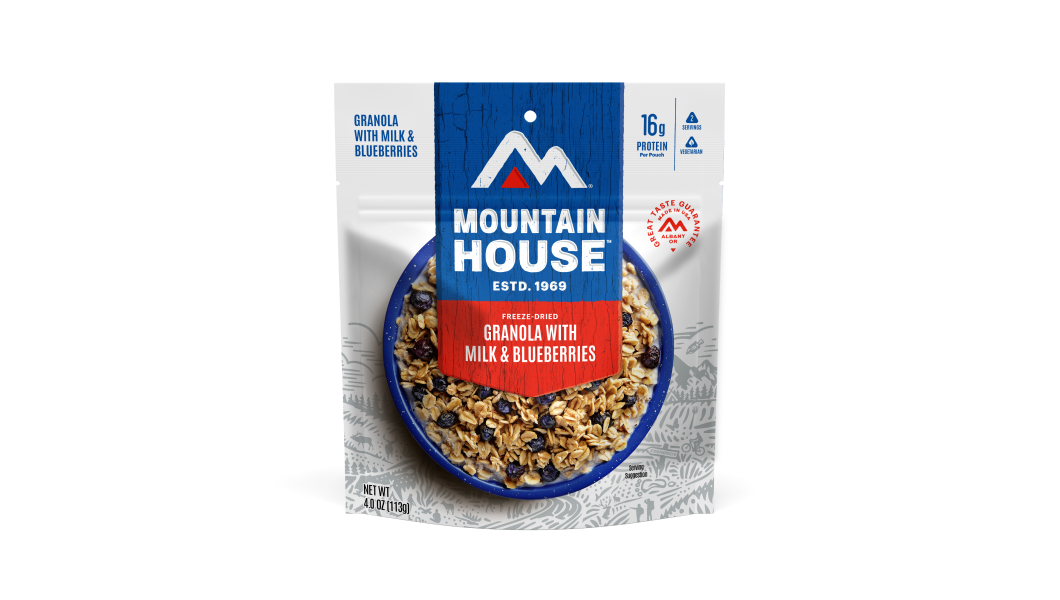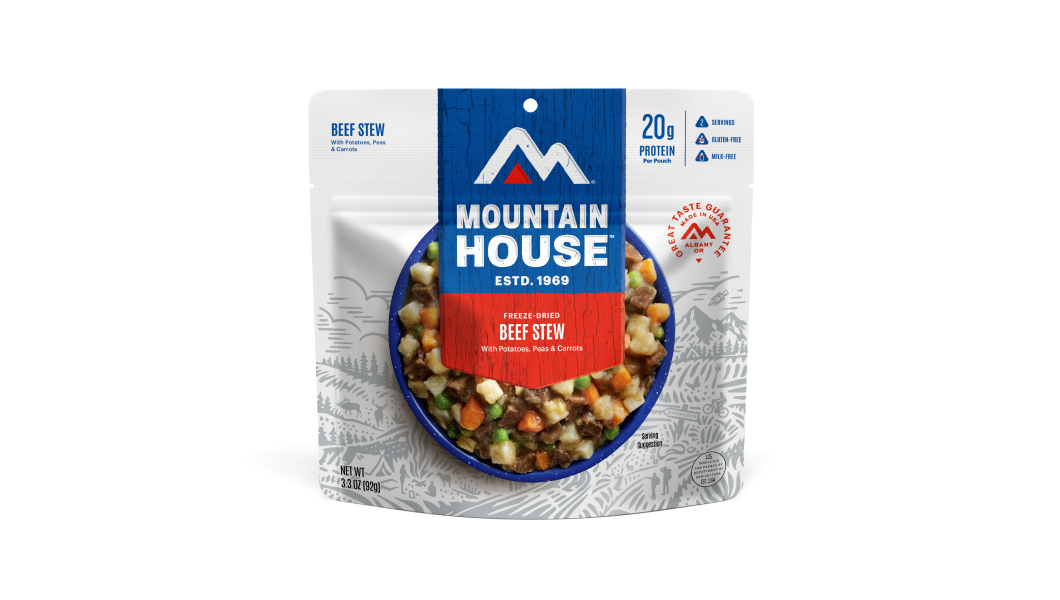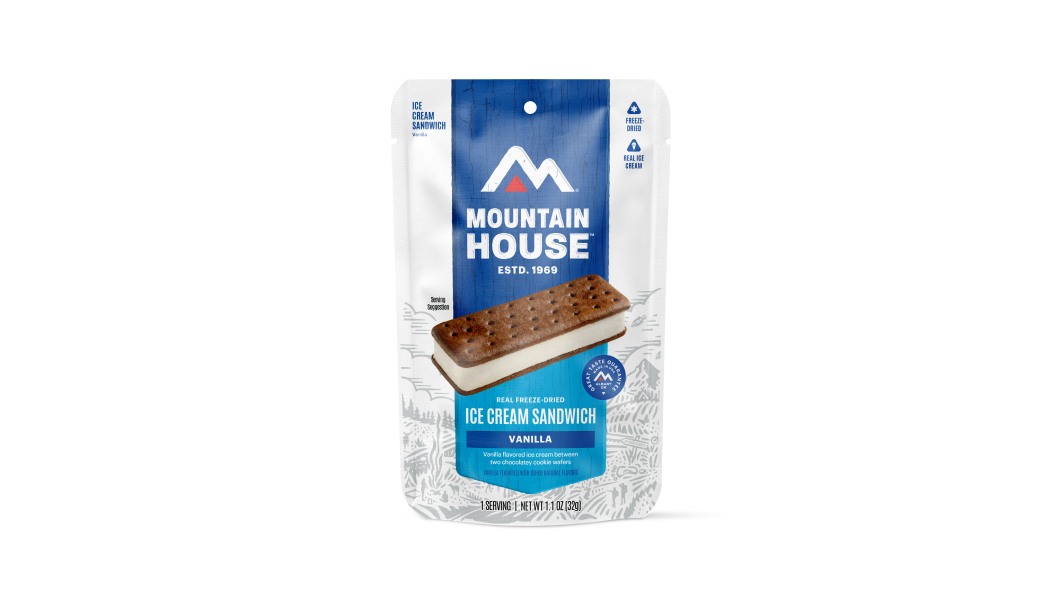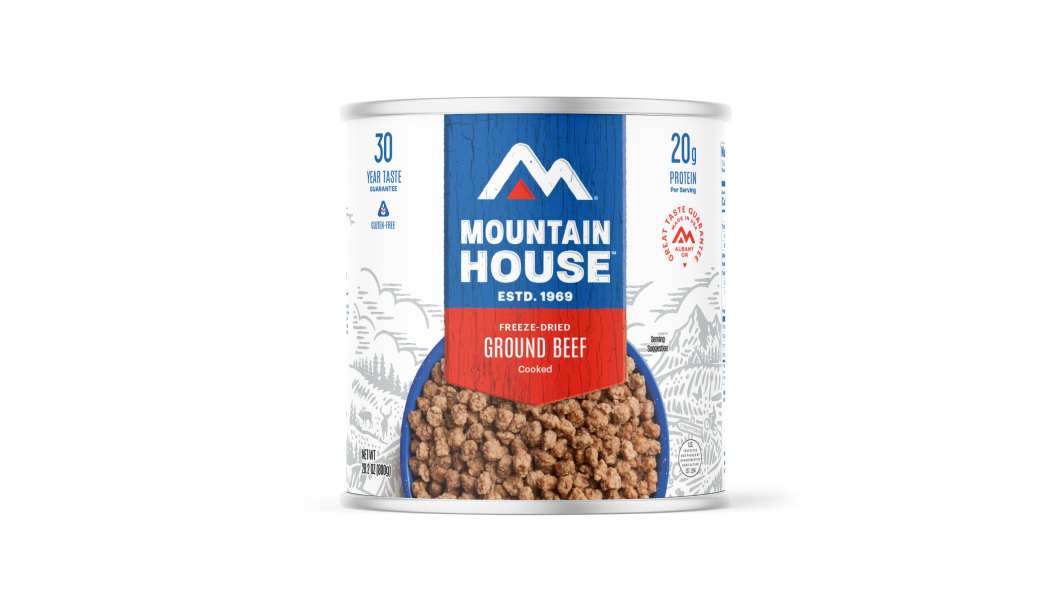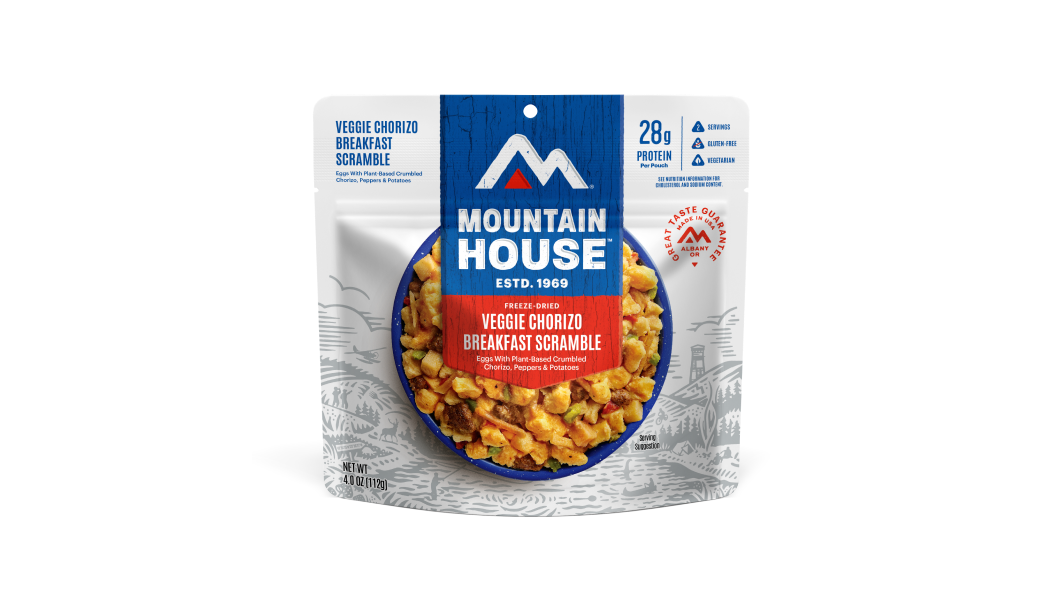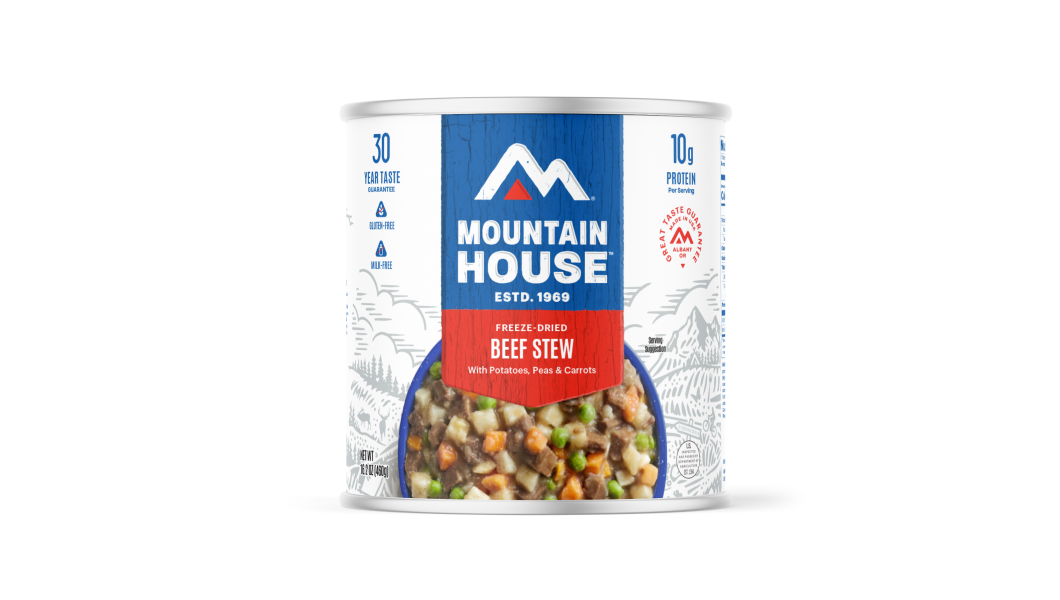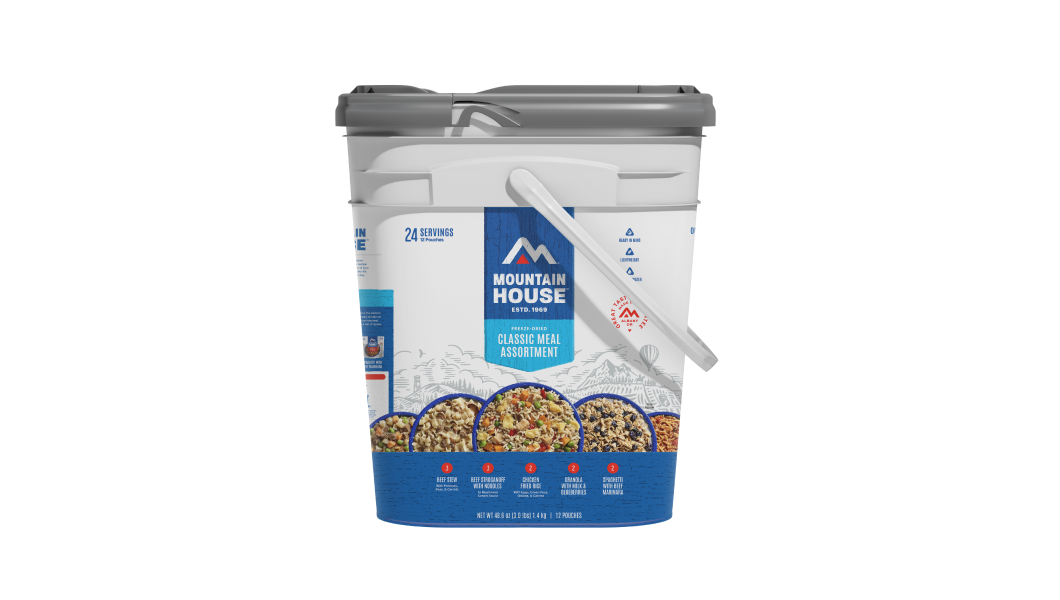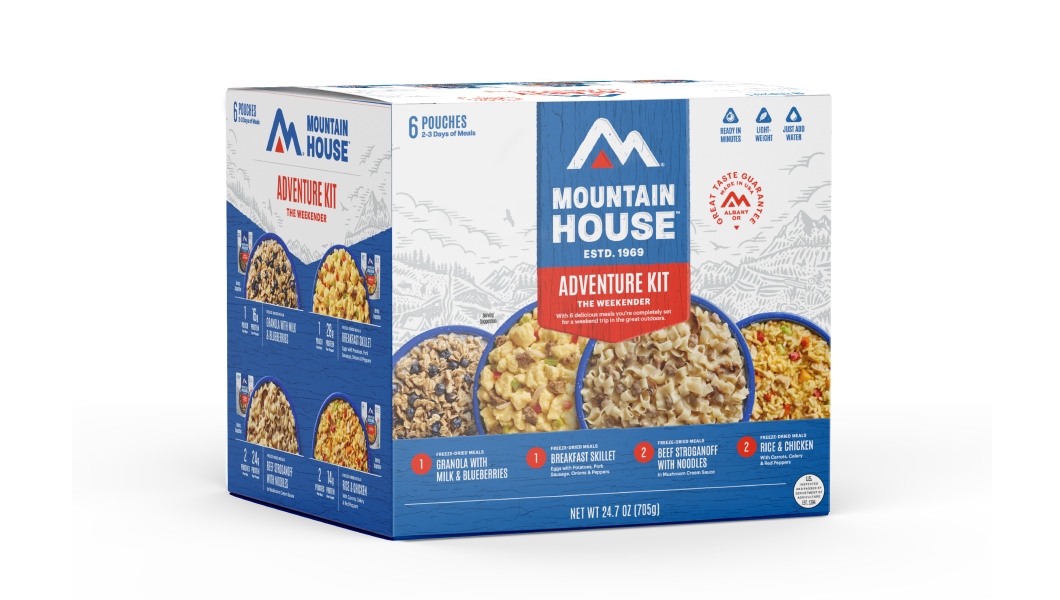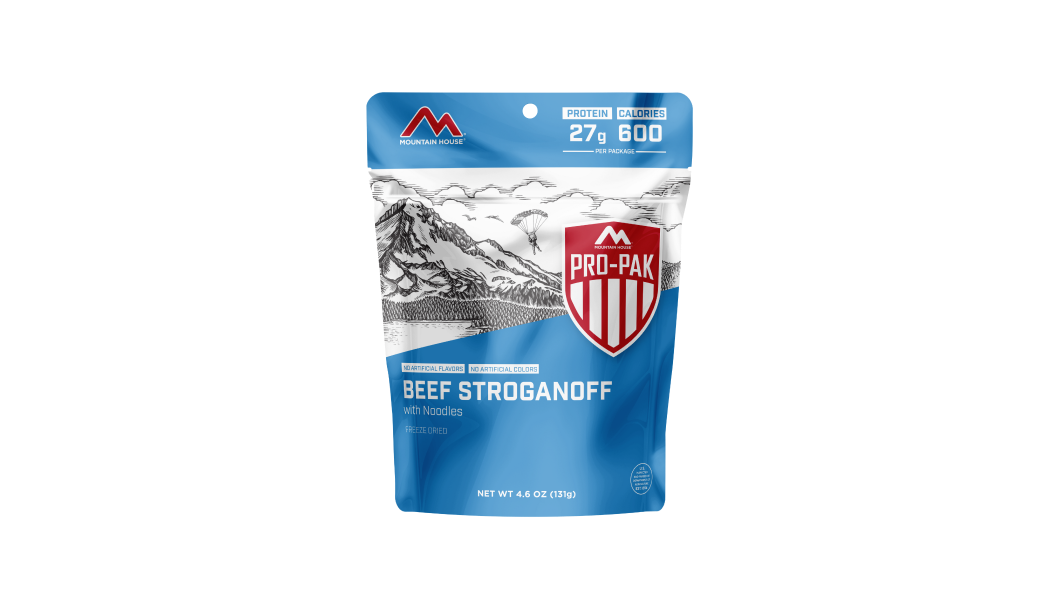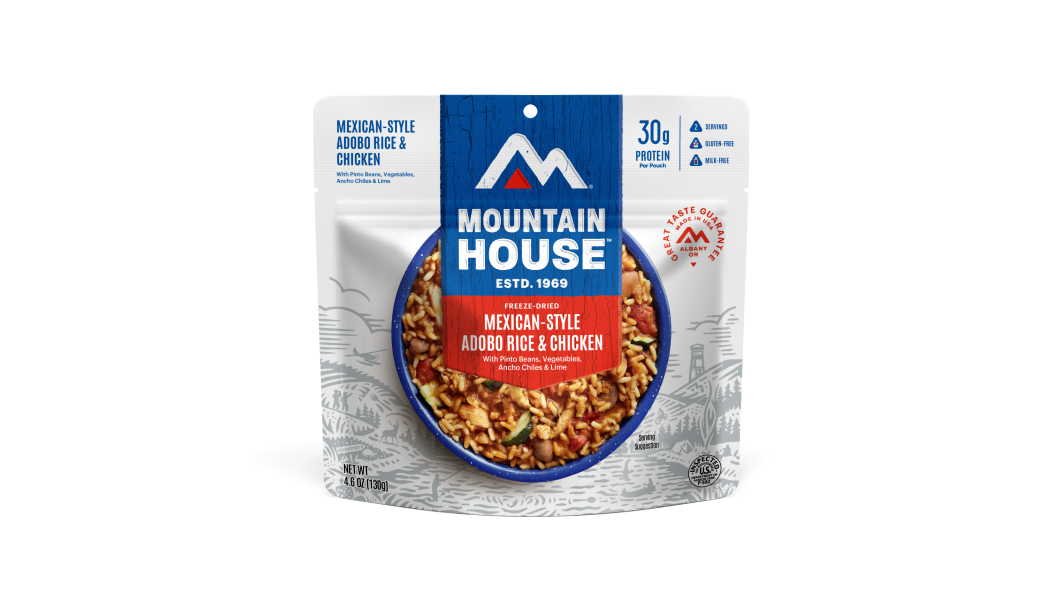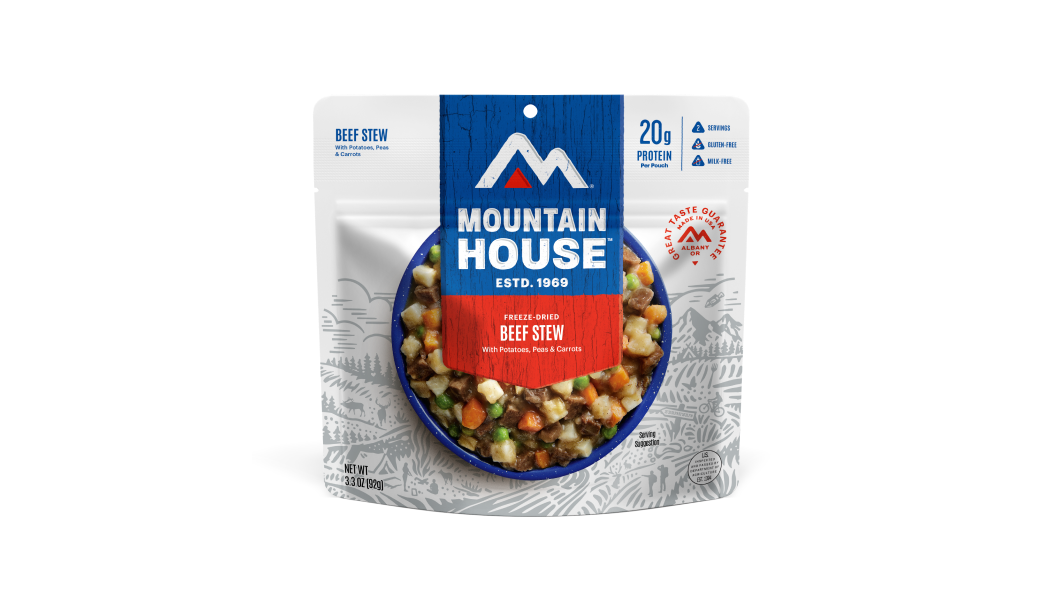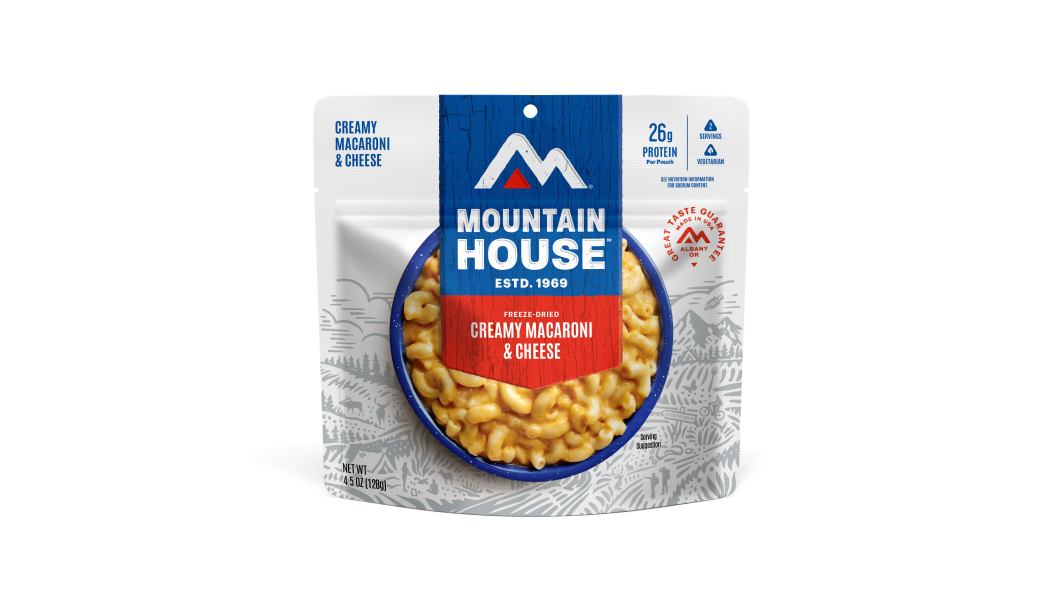Inspired for an Adventure? Check out Beef Stroganoff - Pouch and Beef Stew - Pouch
Add description, images, menus and links to your mega menu
A column with no settings can be used as a spacer
Link to your collections, sales and even external links
Add up to five columns
Add description, images, menus and links to your mega menu
A column with no settings can be used as a spacer
Link to your collections, sales and even external links
Add up to five columns
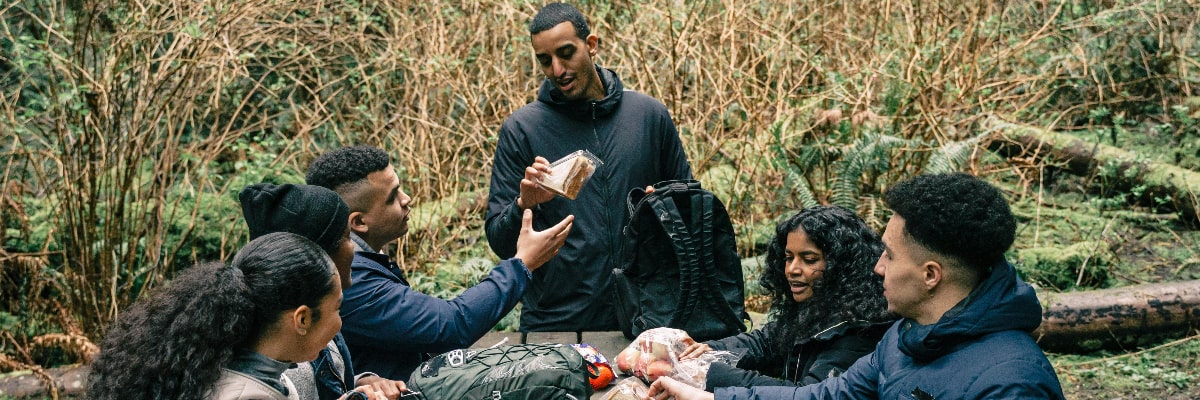

It’s easy to overlook the value of a good snack—especially since, in everyday life, snacking can sometimes be painted in a negative light. But when it comes to hiking (and a lot of other rigorous outdoor pursuits), snacks are legitimately critical. On a switchback trail, there’s no need to feel guilty about satisfying a snack craving; it’s simply part of keeping your energy levels up (and those "hanger" levels down) so that you can fully appreciate the glorious landscapes you’re trekking through—and navigate them safely and surefootedly, too.
That said, we’re talking about the right hiking snacks here—not junk food. In this guide, we’ll run through the best snacks for long hikes and short ones: There’s certainly overlap here, but your snacking approach ought to be a little different between longer and shorter hikes, in terms of managing energy release.
Factors to Consider When Choosing Hiking Snacks
Here are some things to keep in mind when ironing down your snacking game plan for the trail:
Energy Needs
All else being equal, hiking for many people is going to entail higher energy expenditures than their average day’s activities: maybe 6,000 or more calories burned through each day on a more extended and intensive trek.
When selecting snacks—and figuring out when to down them—consider their energetic value. Carbohydrates (packed into foods such as breads, crackers, whole grains, and fruits) are the quickest and easiest foods to turn into energy, so they ought to be the foundation of your snack menu.
Your intake of protein—important for energy processing and tissue repair and readily sourced from foods such as beans, nuts, cheese, and meat—actually won’t necessarily vary much from your everyday consumption; once you’ve hit your base-level protein needs, the excess gets turned into energy or fat.
And speaking of fat, this macronutrient packs the most caloric punch of the three by a good margin, but it’s processed more slowly. If quick energy comes from a hit of carbs, fat—good sources of which include butter, cheese, peanut butter, and salami—provides a slow-burn, sustained sort of fuel.

Image by Iliya Kolodeznyy from Pixabay
Portability & Weight
The best snacks for hiking are compact, portable, and lightweight, especially if you’re doing a long day hike or pounding out the miles on a backpacking trip. You can often repackage premade snacks for more efficient stowing on the trail.
Shelf Life & Storage
Although day hikers don’t have to worry as much about the shelf life of snacks as backpackers, it’s still generally best to choose on-the-go eats that don’t need refrigeration (or can at least last a while outside of the fridge) and can hold up in the face of the wild temperature swings we often encounter in the Great Outdoors.
Dietary Restrictions & Preferences
It goes without saying that if you or a member of your hiking party has one or another dietary restriction (vegetarian, gluten-free, etc.) or a food allergy (such as those pernicious nut allergies that afflict a lot of folks), you’re going to want to pack snacks that align with those needs.
Hiking Trail Difficulty
Although we’re splitting up long vs. short hikes in this guide, the length of a trail (as any veteran hiker knows) is definitely not the only determinant of its difficulty. A short but incredibly steep trail with a lot of elevation gain can be a lot more energetically taxing than a long hike on a gentle grade. On a more difficult trail, you’re likely to want more snacks that are more calorically rich.
Managing the kinds of snacks you’re eating, and when, becomes all the more important on a long-distance thru-hike.
Best Snacks for Short Hikes
When heading out for a short hike, you’ll want snacks that are quick, convenient, and provide a reliable energy boost. These options should be easy to pack and satisfying, keeping you fueled without weighing you down.
Fresh Fruits & Vegetables
Just about any sort of fresh fruit or vegetable is fair game for a short hike. Along with providing some hydration, these healthy snacks—apples, bananas, baby carrots, and the like—also give you a boost of natural sugars.
Granola Bars & Energy Bars
A classic go-to for a quick energy hit, granola bars, protein bars, and the like typically provide a good mix of carbs, protein, and fats. Try to avoid those that are highly processed and full of added sugars!

Image by WikimediaImages from Pixabay
Trail Mix
Just as classic, trail mix—including the “good old raisins and peanuts” framework of GORP—often blends nuts, dried fruits, seeds, and chocolate of sorts into a fairly well-balanced and energy-rich hodgepodge that can be an on-the-move snack or an easy trailside lunch.
Nut Butter Packets
Packets of peanut butter, almond butter, and other nut butters are also convenient and protein- and fat-stocked trail snacks, nicely paired with pretzels, crackers, or fresh fruit.
Dark Chocolate
A dark chocolate bar, chocolate-covered almonds, and the like can provide a good source of fat and carbohydrates.
Best Snacks for Long Hikes
Long hikes call for snacks or meals that go beyond quick energy boosts. You’ll need foods that provide sustained energy, are lightweight and portable, and can withstand longer hours in your pack. These snacks help keep you energized and ready to tackle the miles ahead.
Jerky & Dried Meats
Compact and feather-light, jerky and other dried meats (which you can buy premade or make yourself) boast a long shelf life and provide a great source of on-the-trail protein as well as fat.
Dried Fruits & Fruit Leathers
Dried fruit, such as dried apricots, mangoes, raisins, and fruit leathers, makes for another concentrated energy source that’s super-packable and lightweight.
High-Protein Energy Bars
On a longer hike, protein-rich snack bars can give you a more sustained pulse of energy.

Dehydrated or Freeze-Dried Meals
The freeze-dried meals we produce here at Mountain House offer another great choice for nutritious, tasty, and quick-to-prepare eats on the trail. Lunch and snacks tend to grade together on a hiking trip, and our just-add-water pouches—which feature well-balanced recipes that, thanks to our proprietary freeze-drying process, retain an exceptional degree of nutritional value as well as flavor—are perfect for sustaining you midway through a lengthy hike (and, of course, just what the doctor ordered for backpacking).
Nuts & Seeds
Almonds, cashews, sunflower seeds, and other nuts and seeds deliver healthy fats and proteins in a highly snackable form.
Whole Grain Tortillas & Nut Butter
Whole-grain tortillas, which are highly packable and maintain well over the course of a long hiking day, give you a nice carb base tastily accentuated with protein- and fat-rich nut butter.
Hydration & Electrolytes
Staying hydrated while hiking is of paramount importance. It’s really easy to get dehydrated while missing the early warning signs, and, besides hampering your hiking performance, this condition can quickly turn dangerous.
Besides, good old-fashioned water (which you should be taking in at about one quart per hour on a typical hike), powdered lemonade, and other drink mixes give you a tasty incentive to stay hydrated. Sports drinks and electrolyte chews or gummies can help you keep those electrolytes replenished amid the sweaty exertion of a hardy hike. And as we’ve mentioned, some snacks, such as fresh fruit and veggies, deliver at least a little hydration when you scarf them down.
Respect the Outdoor Space
Use reusable containers or bags to pack your hiking snacks. Abiding by basic hiker etiquette, take care not to litter packaging or wrappers (pack it in, pack it out) or send a bunch of crumbs to the ground. A few cracker or pretzel crumbles might seem innocuous enough, but they can be part of conditioning rodents, birds, and other critters to associate trails—and people—with treats.
Hiking Snack Ideas: Add Mountain House to the Mix
To up your game when it comes to hiking snacks, take a gander at our complete lineup of freeze-dried camping and backpacking foods here at Mountain House!

How to Hike Safely in Winter & Cold Weather

5 Wilderness Survival Situations: Skills and Strategies to Stay Safe


Stay Hungry for Adventure
Sign Up for Delicious Outdoor Meals & Exclusive Offers!
By clicking ‘Join Now’, I agree to the Terms of Service and Privacy Policy.


Join the adventure
©2026 Mountain House — All Rights Reserved.
Your Cart is Empty
Continue ShoppingYour Cart
Subtotal
$0.00
EXPRESS PAYMENT METHODS AVAILABLE IN CHECKOUT
Taxes and Shipping Calculated at Checkout
Your ExpertVoice deal.
$[Deal Price]
$[Original Price]
Discount applied at checkout.
On sale now — lower than your ExpertVoice discount.
Not eligible for ExpertVoice discount.
You’ll see your ExpertVoice discount at checkout.
